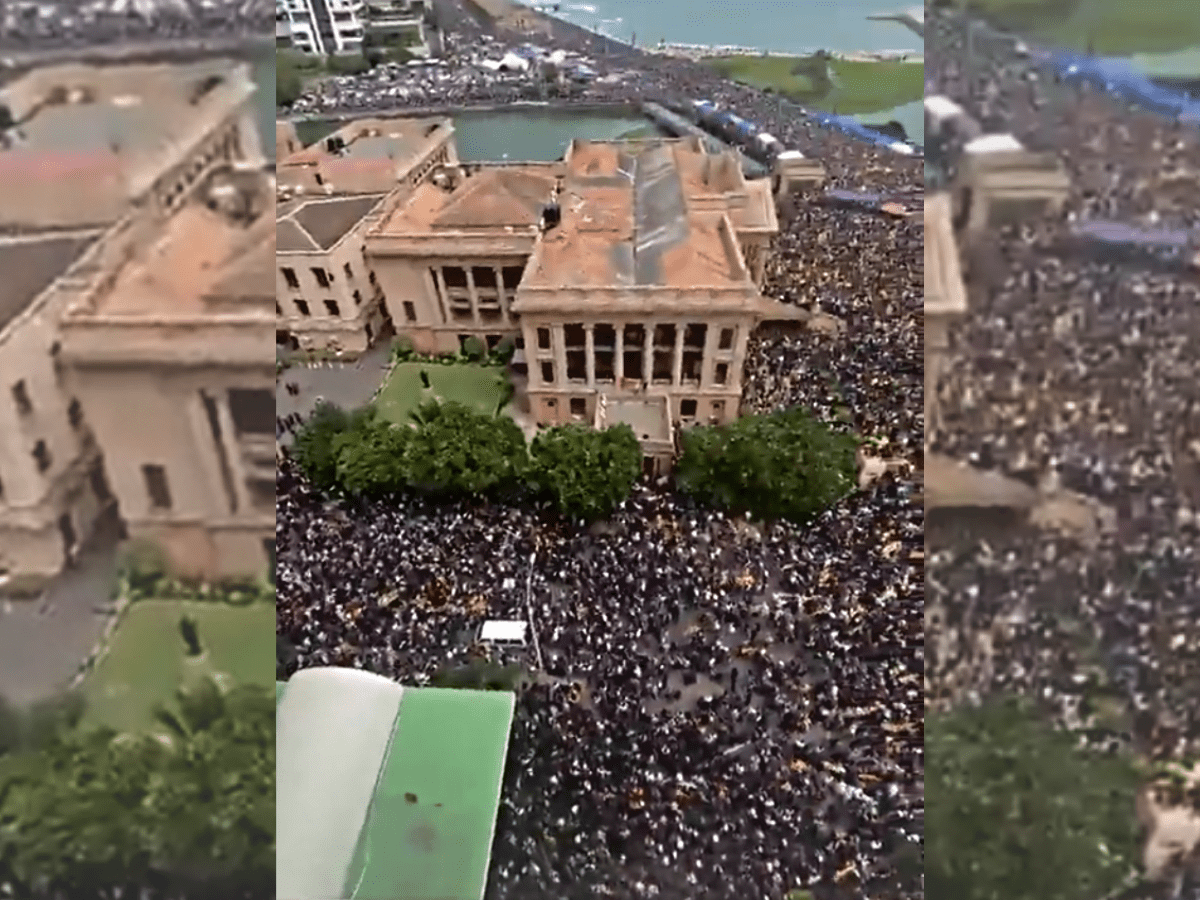
Colombo: Sri Lankan Army chief General Shavendra Silva on Sunday said that an opportunity to resolve the current political crisis in a peaceful manner is now available and sought the people’s support to maintain peace in the island nation, hours after embattled President Gotabaya Rajapaksa agreed to step down on July 13.
Thousands of irate anti-government protesters in Sri Lanka on Saturday stormed into embattled President Rajapaksa’s official residence in central Colombo’s high-security Fort area after breaking the barricades, as they demanded his resignation over the island nation’s worst economic crisis in recent memory.
The protesters also torched the private residence of Prime Minister Ranil Wickremesinghe even after he offered to resign.
In a brief statement, Chief of Defence Staff Gen. Silva said that an opportunity has arisen to resolve the current crisis in a peaceful manner.
He requested all Sri Lankans to support the Armed Forces and the Police to ensure that peace is maintained in the country, Colombo Gazette news portal reported.
The statement was issued following the violence seen at Galle Face and Fort on Saturday and near the private residence of Prime Minister Wickremesinghe.
President Gotabaya Rajapaksa and Prime Minister Ranil Wickremesinghe have offered to resign following the incidents.
Gotabaya Rajapaksa’s offer to resign comes after thousands stormed the President’s House in Fort.
Thousands arrived from around the country and stormed the President’s House following a battle with the Police and Security Forces.
Tear gas and water cannons were used while shots were also fired by the military to try and disperse the crowd.
However, people both young and old continued to push their way past the barricades and reached the President’s House.
The public went inside the house and used the facilities, including the swimming pool.
President Rajapaksa was evacuated much earlier from his official residence.
The Rajapaksa brothers, Mahinda and Gotabaya, were hailed by many in Sri Lanka as heroes for winning the civil war against the LTTE but they are now blamed for the country’s worst economic crisis.
Sri Lanka, a country of 22 million people, is under the grip of an unprecedented economic turmoil, the worst in seven decades, crippled by an acute shortage of foreign exchange that has left it struggling to pay for essential imports of fuel, and other essentials.
The country, with an acute foreign currency crisis that resulted in foreign debt default, had announced in April that it is suspending nearly USD 7 billion foreign debt repayment due for this year out of about USD 25 billion due through 2026.
Sri Lanka’s total foreign debt stands at USD 51 billion.



